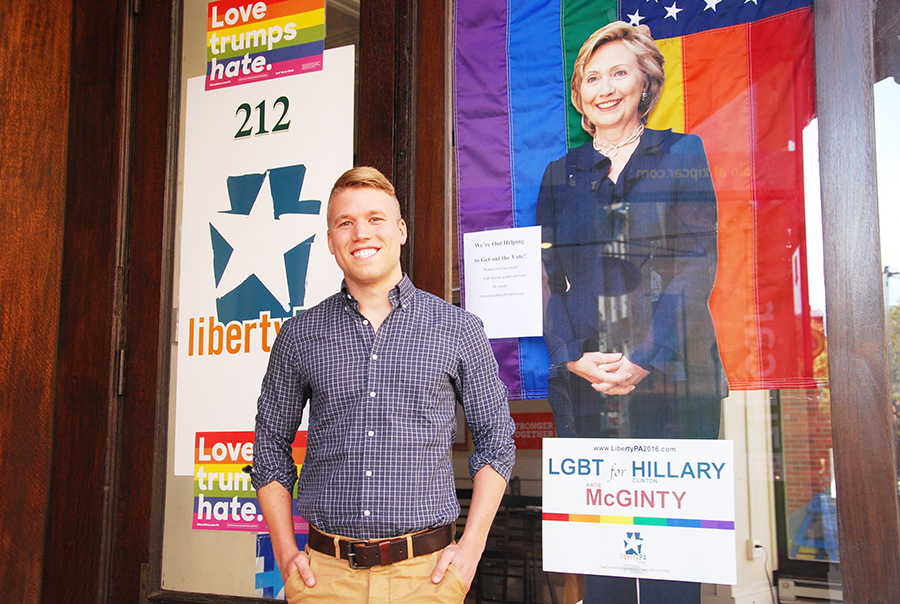Nigel Shelby was 15 when he took his own life in April.
The Alabama ninth-grader had come out to his mother when he was 13 but struggled with his sexual orientation among his peers.
“I just grabbed him and hugged him and told him I already knew,” Camika Shelby told media outlets about the moment her son told her he was gay. “I told him I would never turn my back on him. I always told him, ‘Whatever you want in life, you can have it.’”
Despite his mother’s acceptance and support, Nigel may have succumbed to the pressure inherent in being LGBTQ — pressure that led 39 percent of the nation’s LGBTQ youth to seriously consider suicide in the past year, according to The Trevor Project’s first National Survey on LGBTQ Youth Mental Health.
For transgender and nonbinary youth, the statistic is even more staggering: More than half reported they seriously thought about ending their lives.
Two-thirds of LGBTQ youth reported that someone attempted to convince them to change their sexual orientation or gender identity, while 42 percent of those who underwent conversion therapy reported a suicide attempt in the last year.
Amy Green, director of research at The Trevor Project, led the team in conducting the survey, with the goal of better understanding ways to end suicide among LGBTQ youth.
“We are committed to producing and using research that allows us to best support LGBTQ youth and save more lives,” she said.
Results of the youth survey parallel, in part, statistics on suicidality in LGBTQ adults. Forty percent of transgender adults reported having made a suicide attempt; 92 percent of this group made that attempt before they turned 25.
The death earlier this month of Philadelphia Deputy Sheriff Dante Austin, 27, was ruled a suicide — and served as a tragic reminder that LGBTQ people are at greater risk for illnesses like depression.
More than 70 percent of The Trevor Project respondents reported feeling sad or hopeless for at least two weeks in the past year, while 76 percent said the recent political climate impacted their mental health or sense of self.
The survey also found that 87 percent of LGBTQ youth felt it was important to reach out to a crisis-intervention organization that focuses on LGBTQ youth, like The Trevor Project.
Anna Kiesnowski, gender-affirming services manager at Mazzoni Center, said that while “all the numbers are horrifying,” there are ways to address these issues.
“Maladaptive issues from stigmatization are prevalent,” she said of the bullying and subsequent feelings of anxiety and depression experienced by LGBQ, trans, GNC and nonbinary youth. But, she added, “we tend to under-appreciate the positive effects of family acceptance. Kiddos who come in with even one parent or guardian, a mentor who supports them, do better in the world.”
Such support is critical, Kiesnowski said.
“We know LGBTQ are at risk. We also know there is a protective factor in family acceptance that leads to self-esteem and adaptive skills” in facing stigma and bullying.
Amit Paley, CEO and executive director of The Trevor Project, said the study makes clear a vital distinction: “It’s important to note that LGBTQ youth are not at higher risk of suicide because of their sexual orientation or gender identity. They are at a higher risk because they face harmful rejection and discrimination from friends, families and communities that can make them feel their lives are worth less than their straight or cisgender peers.
“That is why it is so important that we work tirelessly to let LGBTQ youth know that they are beautiful as they are, that they are deserving of respect, and that they are not alone,” she added.
If you have suicidal feelings, there are numerous hotlines for support. The Trevor Project has a 24-hour hotline for LGBTQ youth: 866-488-7386. PFLAG offers a crisis line: 888-843-4564. Trans Lifeline offers its own hotline service: 877-565-8860. And the National Suicide Prevention hotline offers LGBTQ-friendly services: 800-273-8255
